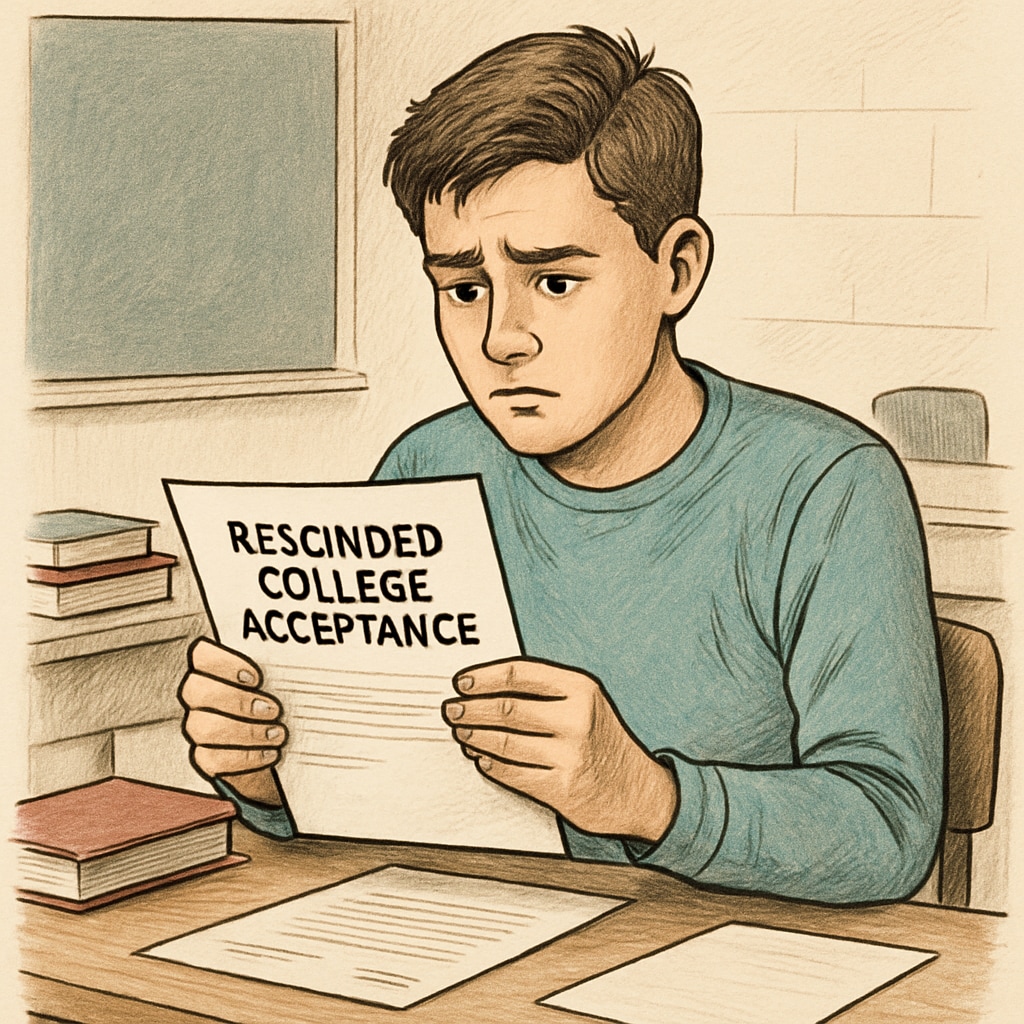Dishonesty in college applications is a serious issue that can have far-reaching consequences. While the temptation to exaggerate achievements or falsify information might seem like a shortcut to success, the risks far outweigh any perceived benefits. From revoked admissions to tarnished reputations, the fallout from dishonest practices can be devastating. In this article, we will explore the potential consequences of dishonesty in college applications and offer practical advice on maintaining integrity throughout the process.
The Immediate Risks of Dishonesty in College Applications
One of the most immediate consequences of dishonesty in college applications is the risk of having an admission offer rescinded. Universities take academic integrity seriously, and many have policies that explicitly forbid any form of deception in the application process. If discrepancies are discovered, even after admission, colleges can take action to revoke the offer or even expel the student.
For example, inflating GPA scores, fabricating extracurricular activities, or plagiarizing essays can all be discovered through routine verification processes or post-admission audits. The result is not only the loss of an opportunity but also a permanent mark on the student’s academic record, which could hinder future educational or career pursuits.

Long-Term Consequences of Academic Dishonesty
The repercussions of dishonesty extend far beyond the application process. Once a student’s integrity is called into question, it can follow them for years. Academic institutions, scholarship committees, and even employers often share records or request background checks. A history of dishonesty can make it difficult to secure scholarships, internships, or professional opportunities.
Additionally, the psychological toll of living with dishonesty can be significant. Students who take unethical shortcuts may suffer from guilt, anxiety, and a lack of confidence in their abilities. Over time, these feelings can negatively impact academic performance and personal development.
Why Integrity Matters in College Applications
Maintaining honesty throughout the college application process is not only a moral obligation but also a practical strategy for long-term success. Academic institutions value integrity and are more likely to support students who demonstrate genuine effort and authenticity. Furthermore, presenting an accurate portrayal of one’s achievements allows colleges to make informed decisions about a student’s fit for their programs.
In addition, cultivating integrity during the application process helps students build resilience and accountability—qualities that are critical for success in higher education and beyond. By approaching applications with honesty and transparency, students set a strong foundation for personal and academic growth.

Tips for Maintaining Integrity in the Application Process
To avoid the pitfalls of dishonesty, students should focus on presenting their authentic selves in their applications. Below are some practical tips for maintaining integrity:
- Be truthful about achievements: Ensure that all information, from grades to extracurricular activities, is accurate and verifiable.
- Write original essays: Avoid copying or plagiarizing; instead, focus on crafting a personal narrative that reflects your unique experiences and goals.
- Seek guidance: Consult with teachers, counselors, or mentors to ensure your application is both honest and compelling.
- Double-check your work: Review your application for errors or inconsistencies before submission.
By following these guidelines, students can create applications that not only meet ethical standards but also showcase their true potential.
Conclusion
The consequences of dishonesty in college applications are severe and enduring, from immediate setbacks like admission revocation to long-term damage to one’s reputation and career prospects. However, by prioritizing integrity, students can avoid these risks and pave the way for genuine success. Remember, the college application process is not just about gaining admission; it is also an opportunity to demonstrate character and resilience. In the end, honesty is not only the best policy but also the foundation of a successful and fulfilling academic journey.
For more information on academic integrity, visit Academic Integrity on Wikipedia or explore the Britannica guide to ethical academic practices.
Readability guidance: This article uses short paragraphs, frequent transitions, and actionable tips to ensure clarity and engagement. Overly complex sentences and passive voice have been minimized to improve comprehension.


